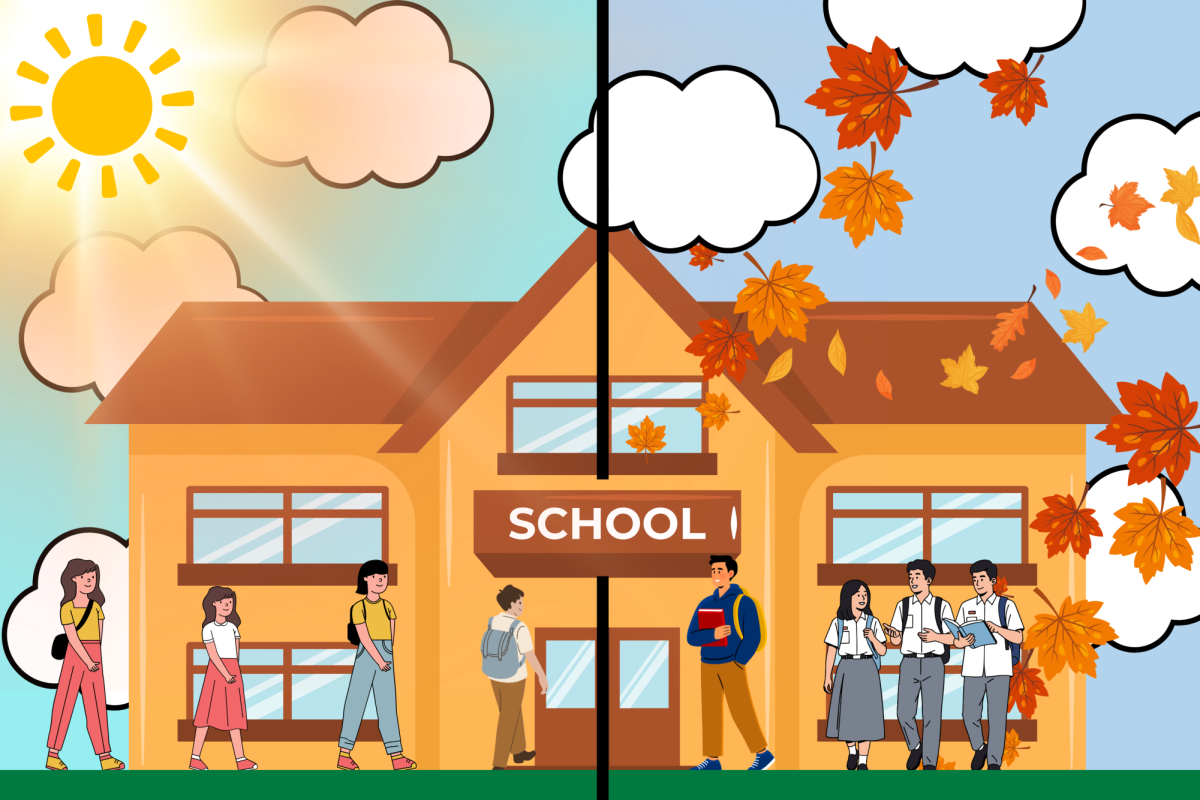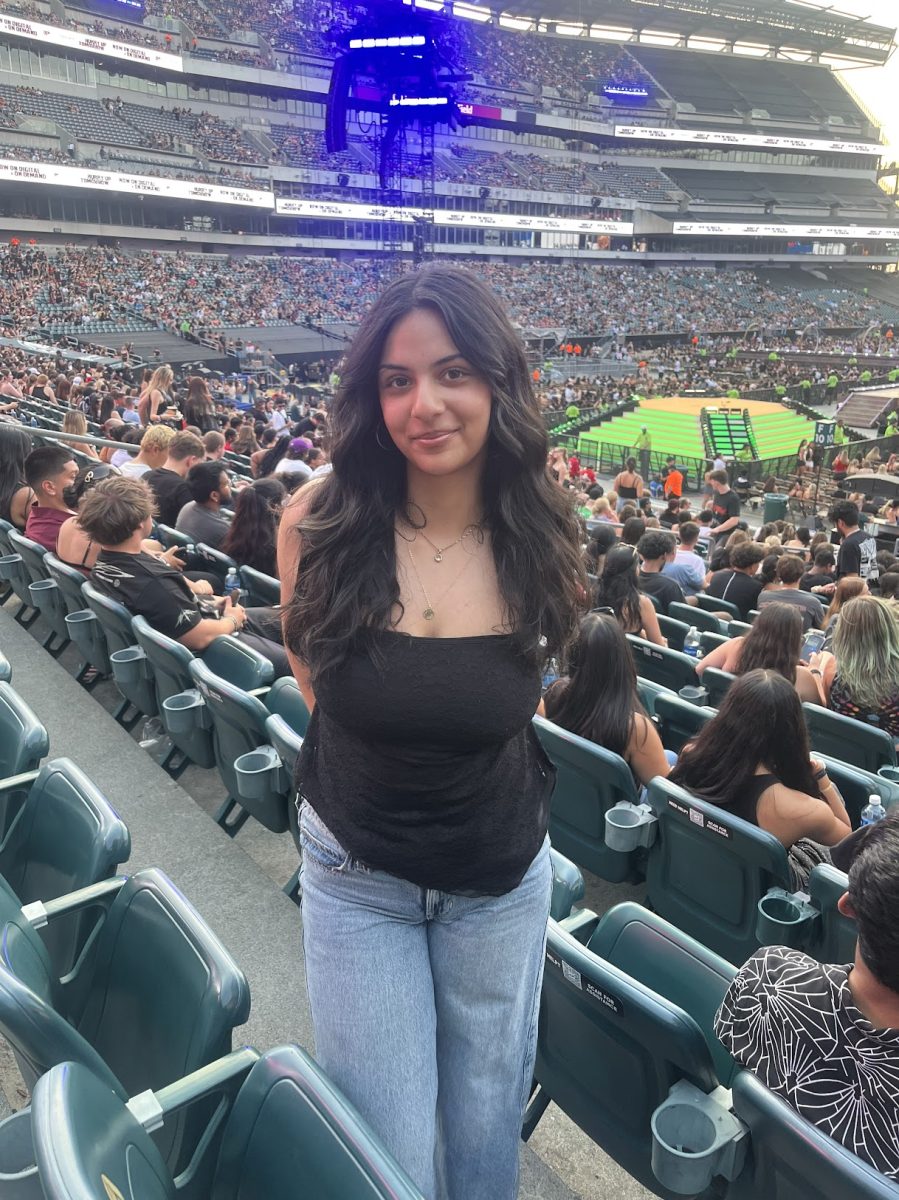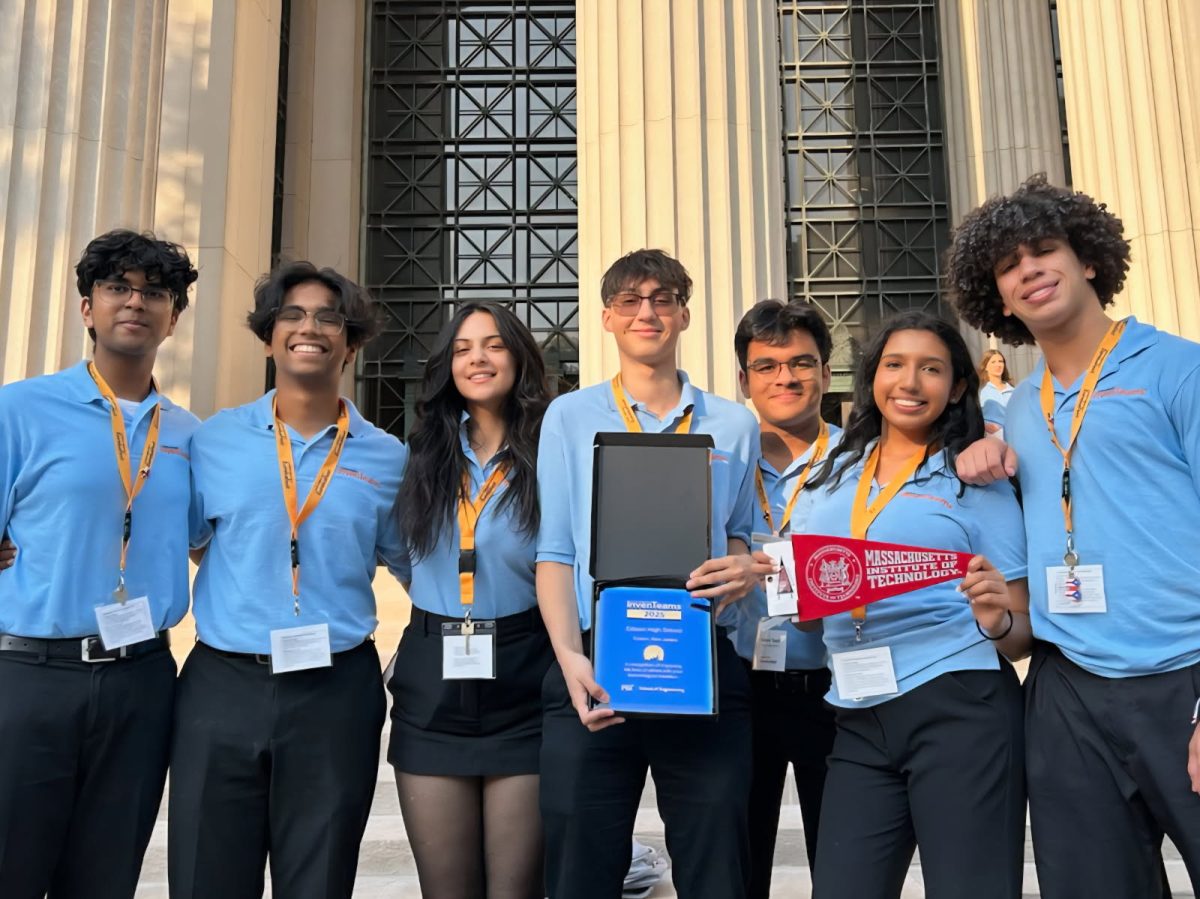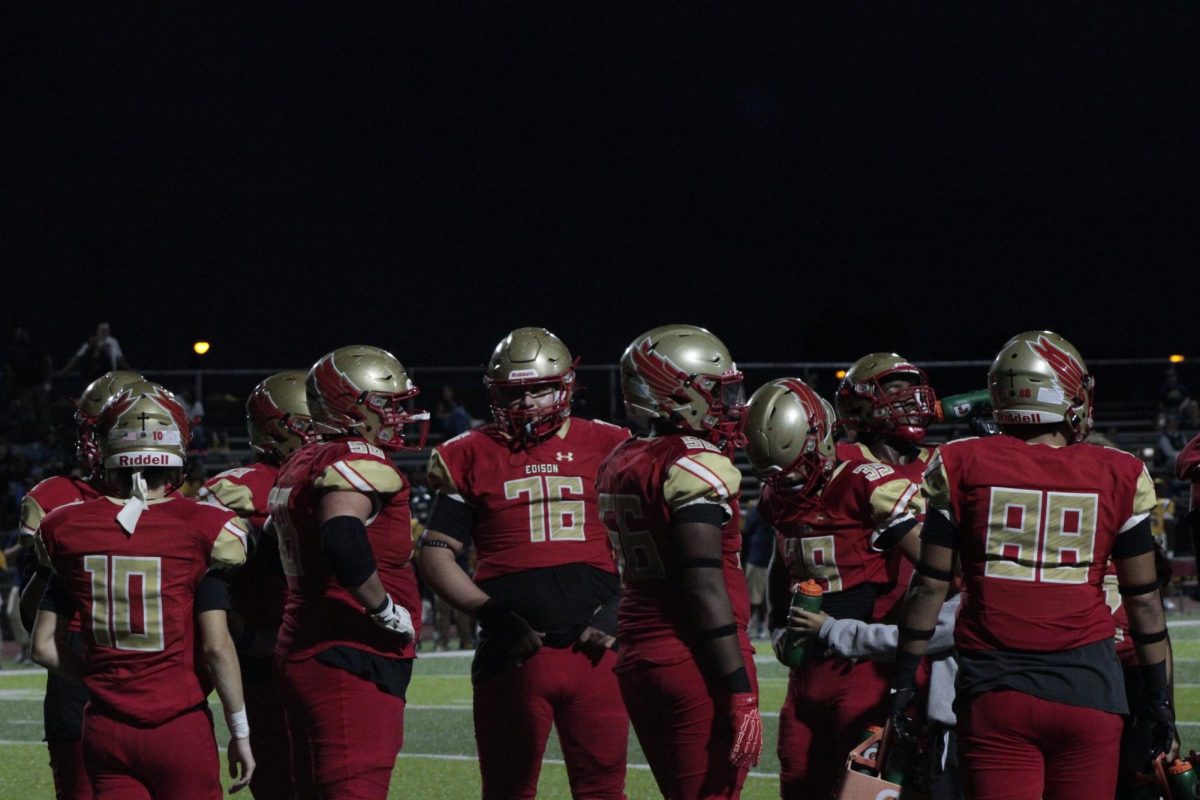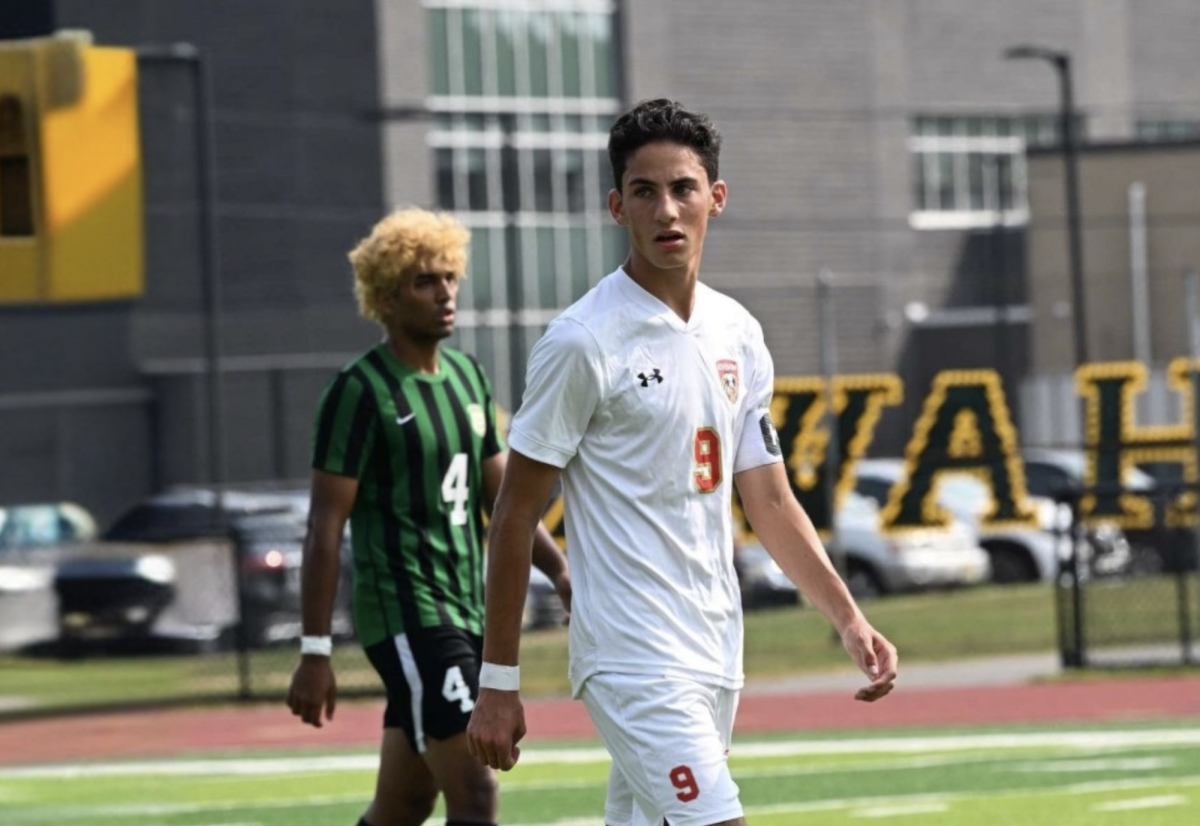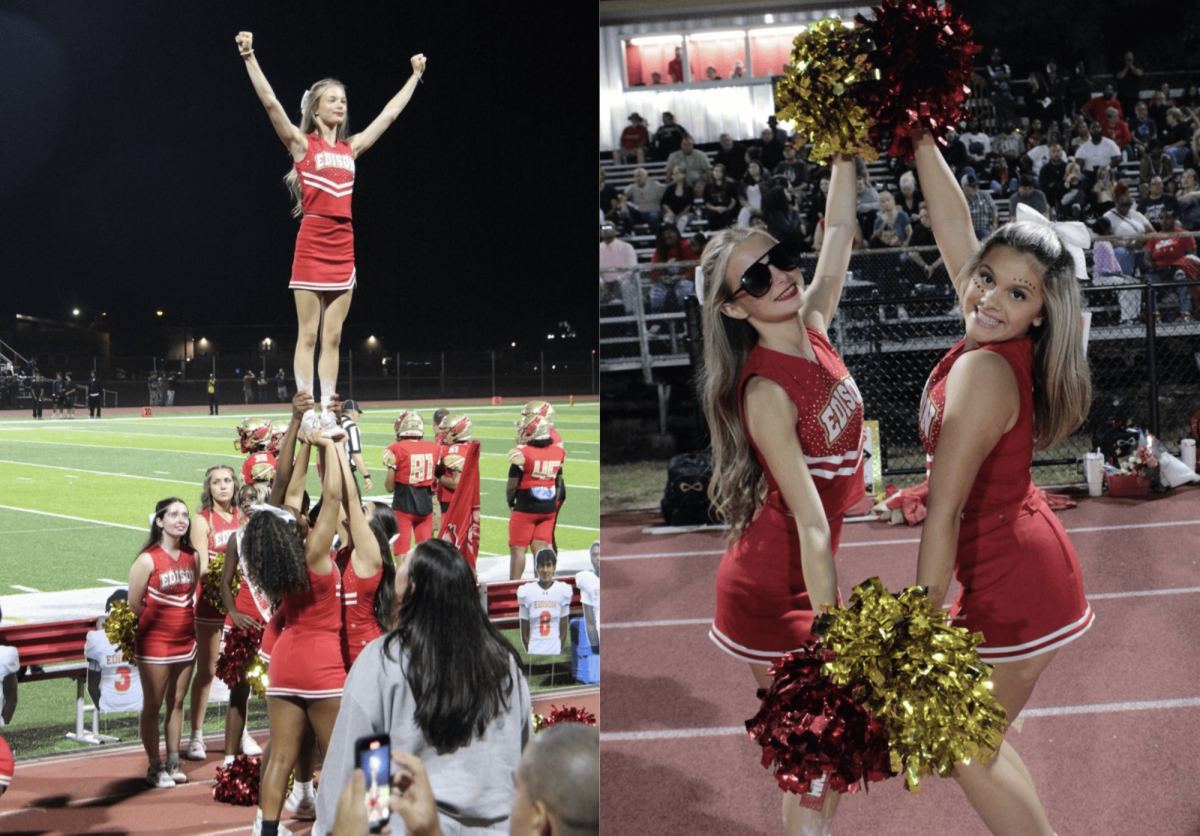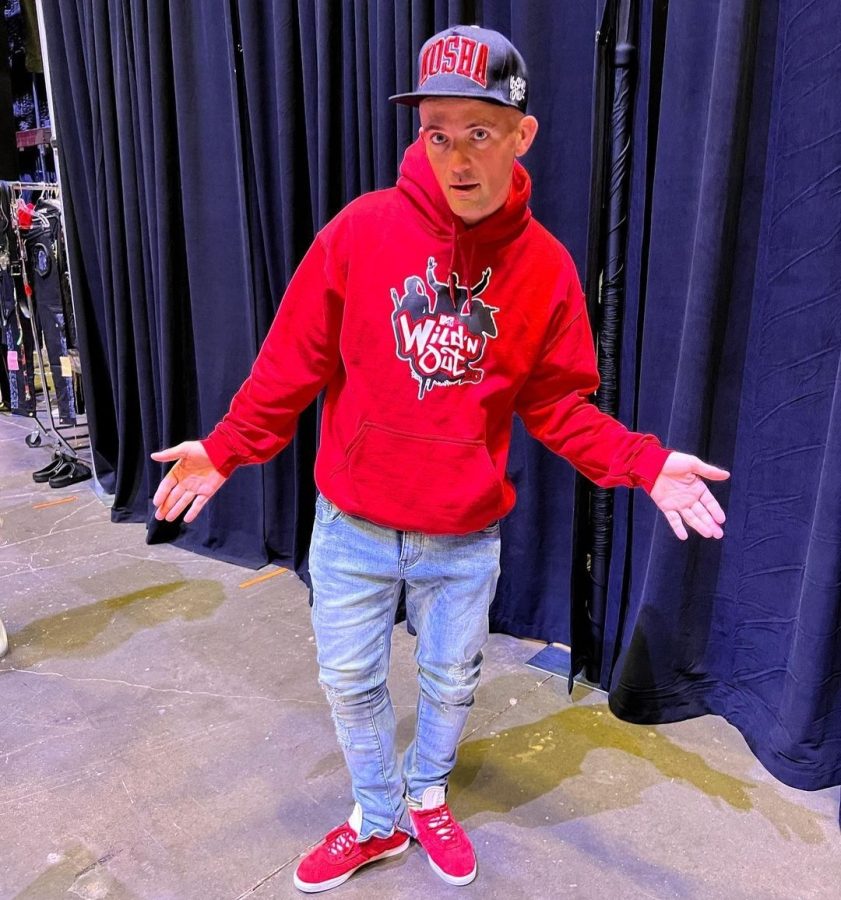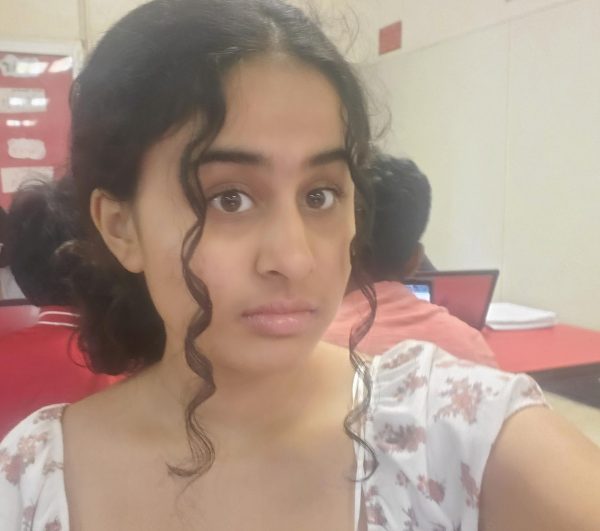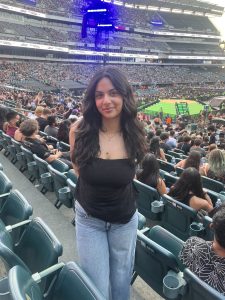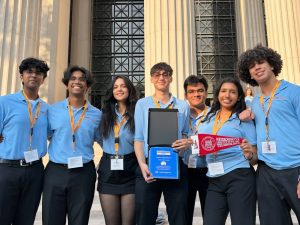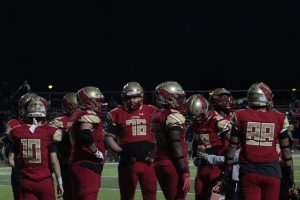A Call From Eagles Out of the Nest: Kosha Dillz
Kosha Dillz on the set of Wild ‘n Out
November 7, 2022
Some of the most popular names in modern rap include Lil Uzi Vert, Nicki Minaj, and Lil Baby. Everyone at Edison High School knows at least one of these names, but what about our very own Eagle who turned to music for a career?
Rami Even-Esh ’99, widely known as Kosha Dillz, started off his adult life on the wrong foot by dropping out of Rutgers University and stepping into drug addiction. Nevertheless, he was eventually able to beat all odds and redeem himself. He quit his addictions and went back to Rutgers University to finish his degree. Later, he started his music career which soon began to take off.
Kosha Dillz’s website describes him as one of the most “culturally diverse artists of our generation.” He integrates multiple languages into his music, such as English, Spanish, Hebrew, and Yiddish. As a proud Jew, Kosha Dillz often finds ways to implement his faith into his music. He enjoys rapping about everything that has happened in his life such as his college life and his addiction issues. Recently, he released a song titled “Death Con 3” in response to antisemitic remarks made by his fellow rapper, Kanye West.
EE: What do you miss about high school? What about college?
KD: I really loved being on the wrestling team. Playing competitive sports was one of the best things. I made the state championship, and in my senior year I won a county tournament. I remember studying abroad in Spain on a Spanish exchange program. It was really cool that I had the opportunity to do all that in my senior year. That was one of the most exciting things; you don’t really have that after high school. For college, you build these friendships with people who you stay friends with or who you don’t see ever again for many years. For me, in college, I really miss all the group class settings and education. I remember taking Italian, I remember taking Spanish. These are all things that you don’t really get to do as an adult. I went to Rutgers, and it’s a really big school, so for me, I miss that whole community. I also miss college sports—I wrestled in college as well. There’s just a huge camaraderie, and not everyone gets to be a part of that. I was really fortunate to go to such a big school.
EE: Did you take any classes at EHS that would influence your decision to get into rap later on? Or, did you have any moments in high school where you felt like music was your calling?
KD: My first time rapping on stage was when I was seventeen, in my senior year. I went to this place called the Nuyorican Poets Cafe in New York. I guess I was also inspired by my AP World History class. We did this whole presentation thing in a type of assembly, and we used one-on-one wrestling in this presentation. It was a whole performance, and I liked people going crazy for it and cheering me on. I really enjoyed that aspect of it.
EE: What were some of the challenges you’ve faced along the way? How did you overcome them?
KD: I’ve been sober for almost eighteen years in recovery from addiction. I started getting arrested in school at eighteen and twenty. I went to jail when I was twenty-one. When I got out, I went to rehabs, but then I got arrested again. I was dealing with probations, paroles, drug & mental health issues along the way. I think sports really helped me. A lot of the same problems you see someone have when they’re fifteen often carry into adulthood if they never get help. The people who didn’t attend to their drug issues ended up overdosing before they hit thirty. I switched that mentality from drug addiction to pursuing music. I started trying to be a better person and help other people. I took that same energy of selling illegal stuff into my music. Then I just created my career, and I’ve been doing music for over ten years now.
EE: What influenced your decision to go back to Rutgers after you dropped out?
KD: I was so close to finishing, so it made sense for me to finish my degree. I really wanted to finish what I started: I knew I was good enough to finish my education and get a degree. I think everyone should finish what they started. If you drop out of high school, you should go back and finish high school. It’s sort of a redemption.
EE: How does your music reflect the challenges you have faced?
KD: My music doesn’t really reflect the challenges that I’ve had. My music is sort of how I process a lot of my stuff. I make fun songs to process the darker things that have happened to me. Fun songs manage to lift me up, and people often don’t realize that a fun song can be just as important as a darker, sad song. I like my music to reflect who I am as a Jewish guy, a Jersey guy, a New York guy, someone who’s dealt with mental health issues. I like to make my random, creative spurts into music. I think people should make songs about whatever they want.
EE: What influenced you to integrate Judaism into your musical career?
KD: I like to take concepts and things into my music—one example being my stage name, Kosha Dillz. I wasn’t even a really big Jewish kid growing up. Our high school is very diverse, you have people from all sorts of backgrounds. There weren’t many Israeli/Jewish people in our high school. Then I got to college & New York, and there were just bigger groups that had more Jewish people in them. I just really love culture. If I was Mexican, I would probably rap more about Mexican culture and history. If I was Indian, I would probably rap about that. Even being on the soccer team while growing up was an experience filled with diversity—people were always talking about different countries and things like that. Edison itself is so diverse, I was really lucky to grow up in such a diverse place. Hip-hop is made up of people representing who they are, so I think that’s what you should implement into your music, videos, and art.
EE: How do you want to change people’s perceptions of rap through your music?
KD: I just want people to enjoy my music, you know? I want to make sure I get my story told and have my music out there for people to vibe to. If you make a great song that people love, people are going to listen to what you have to say. If you put out a song that becomes popular, people will listen to you more. And then, I have that opportunity and platform to say whatever I want. I can use it for lighthearted things and meaningful things. I think people should know that hip-hop music is everything we do, and it has really shaped the last twenty or so years in America. Everyone from pop stars to rock musicians are using rap in their songs.
EE: Why do you like mixing different styles of music, such as hip-hop and rock?
KD: You really want to reach different fanbases. I would love to reach as many people as I can by incorporating different styles like country, reggae, hip-hop, rock. My biggest goal is to reach as many people as possible. However, making a good song is the most important thing—you never want to force anything.
EE: Finally, what advice would you give to the students here at EHS? What advice would you give to students who also aspire to create a name for themselves?
KD: Don’t worry about where everyone else is going. Even if somebody looks like they are doing better, don’t compare yourself to them. I remember getting onto the wrestling team at Rutgers, and I wasn’t the best there. Life gets tougher as you go on, but you continue to get better too. You’ll be able to rise to each occasion. Secondly, don’t worry about what other people think of you. If you keep on creating stuff that you’re good at, just continue to get better and enjoy it. Too many times—even as adults—we look to other people’s opinions to tell us whether we’re good or not. Thirdly, keep being nice to people. Try to make different friends before you leave school this year. Branch out from people who are similar to you and meet new types of people from different groups. It’s important to be nice to people along the way—we always remember the nice people.



















